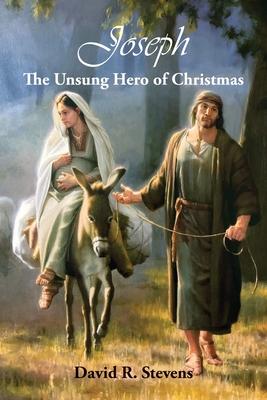"No higher honor could be imagined than to be an instrument in the hands of Jesus Christ, to be at his disposal for the furtherance of his purposes, to be available whenever wanted for his service." -(John Scott)
If God was going to give the greatest assignment ever given to any man in the human race - the responsibility of safeguarding and raising the Son of God - would He give that responsibility to just any-ole-someone who had never proven himself in managing the affairs of life, including money? (Lk. 16:11)
Why did God choose Joseph? Did He just pull a name out of a hat, a random choice, or maybe by accident?
God had been watching Joseph. Did he stick with projects - even when things became difficult? Had he proven himself to be a person of integrity? One that could be trusted?
Lk. 16:11 teaches that God never gives important assignments to people who have not already proven themselves. Joseph had already proven himself as reliable, trustworthy and successful. Consider this: If God was going to give someone the greatest assignment in the history of the world - raising the Son of God - would he give it to someone who had not already proven himself managing the affairs of life, to include money?
From the Introduction:
Much has been written about the shepherds, "keeping watch over their flocks by night."
Much has been written about the Angelic Hosts, "singing glory in the highest - and on earth Peace, goodwill toward men."
Much has been written about the caravan of many Wise Men (Yes...there were significantly more than just 'three!'), "who saw His star in the East and came to worship Him" - although...contrary to scripture, they were not present at the side of the manager, nor at the stable, but, quite possibly
...a few years later, 'in a house.'
Much has been written about the massive massacre (14,000 to 144,000 boys, depending on the source: ton hagion id chiliadon Nepion, Greek Liturgy) that occurred, at the hands of a jealous, Roman puppet-king, in a conclusive, concentric circle "around Jerusalem" - from as far as Ramah to Bethlehem (Matt. 2:16-18; Jer. 31:15). Coptic sources place the date of the massacre on 29 December and is referred to as the Holy Innocents.
But what about Joseph?
What about the elderly, Jewish man who determined that the young (probably around 15 years of age!) girl to which he was engaged to be married, had been impregnated sometime during their year-long-engagement?
What about the stings and taunts he received at the hands of all the villagers?
What about the doubts that flooded his mind that any one of his 'friends' or "associates' may have been the impregnating-culprit? Or, perhaps, it was a Roman soldier who forced himself upon her?
What about the man who stepped-up, and raised a child that was not even his?
What did he do?
What formed his mentality / psyche to raise the child?
What does 'righteous' mean? (Matt. 1:19)?
Although the Bible may not completely answer all of these questions, it does provide enough data to flesh-out the "Unsung Hero of Christmas."
So . . . let's sit back, grab a cup of something hot, and read about the enigmatic man that had a hand in forming History.
